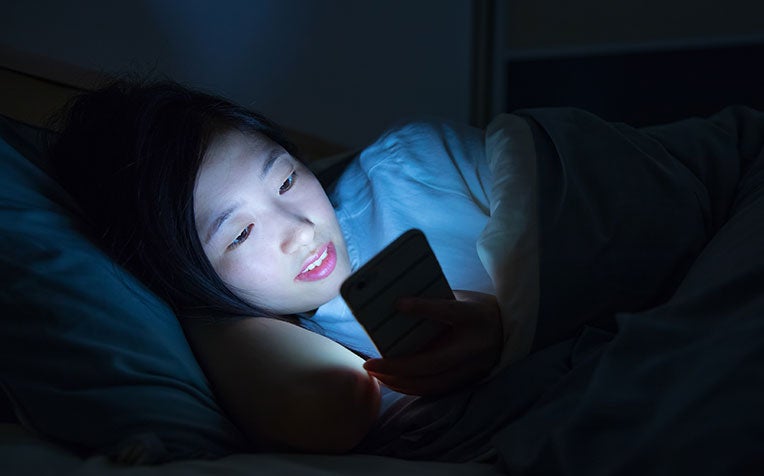1. The body's internal clock relies on environmental cues, especially morning light, to maintain a 24-hour cycle.
2. Blue light is crucial for regulating the circadian rhythm by affecting melatonin secretion.
3. Late-night use of electronic devices emitting blue light can disrupt sleep patterns by delaying melatonin release.

Blue light is emitted by smart phones, TV screens and computer monitors.
How light affects our body clock
The body's internal clock has a roughly 24-hour cycle that governs waking, sleeping and other physiological processes. It relies on daily environmental cues known as zeitgebers – the most important of which is exposure to morning light – to keep it in sync with the normal 24-hour day.
In people living in the polar regions, where the sky can stay dark for as long as six months at a stretch, the so-called circadian clock goes haywire because it doesn’t receive its natural cue – daily sunlight – to prompt them to wake or sleep, creating a sort of perpetual jet lag effect. As a result, people tend to go to bed roughly an hour later each day.
Similarly, teens who use smart devices such as computers to play games late into the night might find it increasingly difficult to nod off despite the lateness of the hour, as do those who work night shifts. “The body’s intrinsic biological clock regulates what time we wake up and when we feel sleepy. That clock is partly reset every day by external cues, the most important of which is morning light shining into our eyes,” said Asst Professor Leow Leong Chai, Senior Consultant, Department of Respiratory and Critical Care Medicine, and Director, Sleep Disorders Unit, Singapore General Hospital (SGH), a member of the SingHealth group.
Blue light delays the secretion of melatonin
Light of blue wavelengths is the most important factor in keeping the body clock ticking accurately. Blue light, said Asst Prof Leow, activates the melanopsin receptors behind the retina, whose only purpose is to regulate the body's circadian rhythm (more commonly known as the body clock).
“When blue light from the morning sun hits the melanopsin receptors, it inhibits melatonin release during the day and increases melatonin release in the evening, promoting normal restful sleep,” said Asst Prof Leow. Melatonin is a sleep-promoting hormone secreted by a gland in the brain that maintains the body clock and helps regulate other hormones.
Smart phones, TV screens and computer monitors emit large amounts of blue light. Using them late at night deceives the brain into thinking it is still day, which delays the secretion of melatonin and keeps users bright-eyed and awake.
Contributed by


















 Get it on Google Play
Get it on Google Play